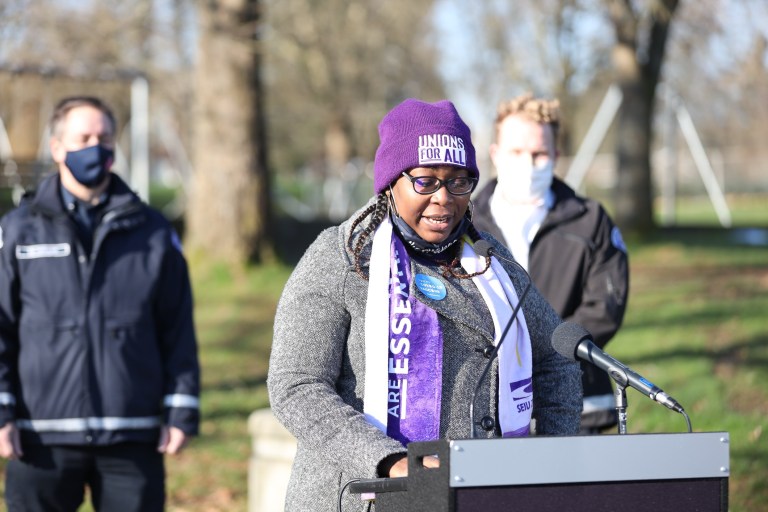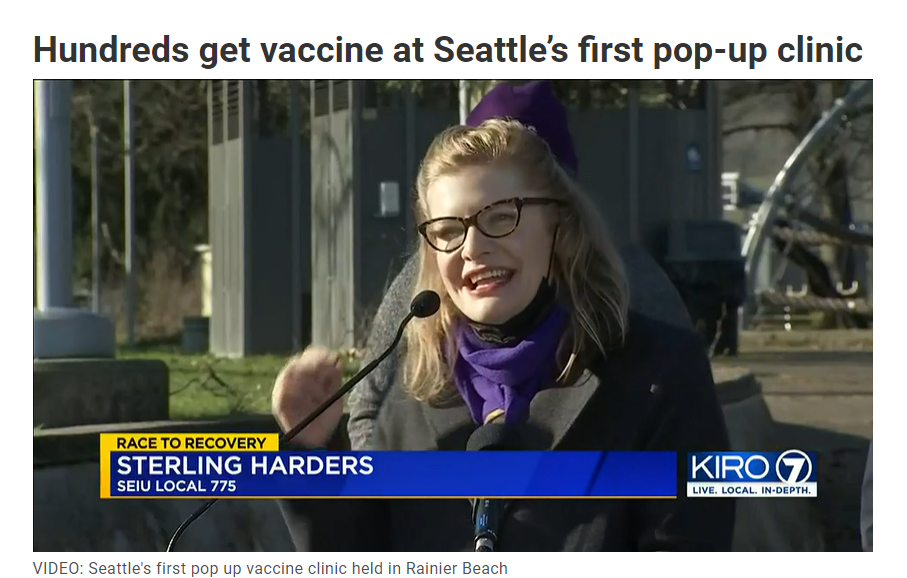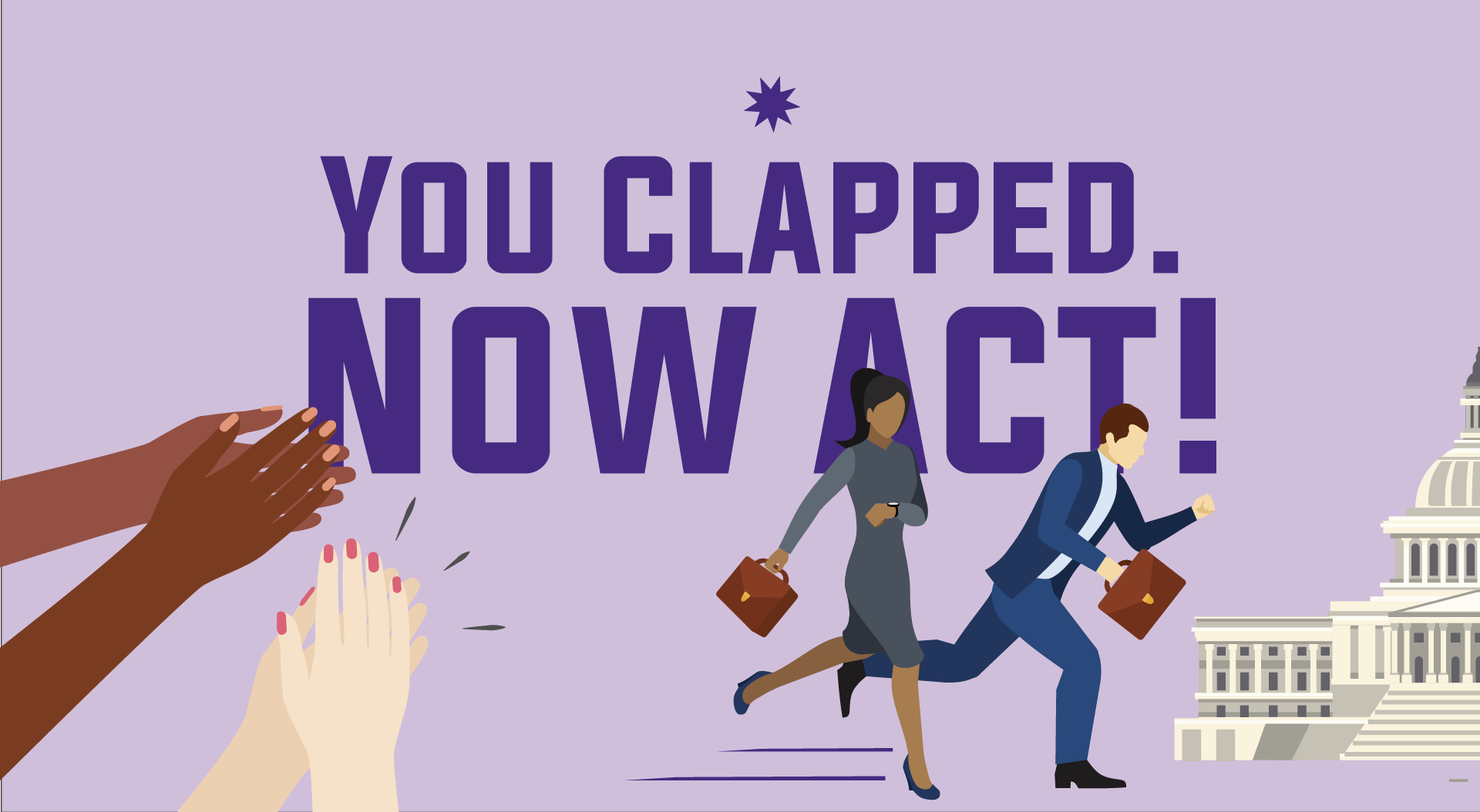January 15, 2021 Update: CCS APs will continue to get a $3 increase to our base wages for all hours worked in January, February, and March. We’ll also continue to receive an additional $25 of targeted Hazard Pay per shift if taking care of a COVID-19 test-positive client.
You can read the latest MOU here.
CCS APs are also in the 1A priority group for getting the COVID-19 vaccine because of our advocacy as a Union. Learn how to get the vaccine here.
August 13, 2020 Update: We have exciting news for CCS caregivers. Our bargaining team has been working to reach an agreement with CCS about extending Hazard Pay – and thanks to workers raising their voices, we have made it happen!
Hazard pay: CCS APs will now get a $3 increase to your base wages for all hours worked in July, August, and September. You’ll see your hazard pay for hours you already worked in your August 25 paycheck. You’ll also receive an additional $25 of targeted hazard pay per shift if taking care of a COVID-19 test-positive client.
PPE: You will continue to be provided with all the necessary PPE for caring for all your clients.
You can read the latest MOU here.
Through impact bargaining, CCS caregivers have won:
- Hazard Pay: CCS APs will receive an additional $3.50 an hour for every hour worked in May and June. We are all on the front lines, so all CCS APs will receive this pay regardless if you are caring for a client with COVID-19. And, you’ll get an additional $25 targeted-hazard pay per shift for taking care of COVID-19 test-positive clients.
- More PPE: CSS has committed to spending $255,000 to provide PPEs and supplies intended to protect workers, including one-time use N-95 masks, face shields and goggles, gowns, and gloves for caring for test-positive clients.
- Healthcare and Training: CCS is increasing their hourly contribution rate to the Training Partnership and Health Benefits Trust for all hours worked in May and June so no one loses healthcare coverage.
See the full MOU here.
Despite the State facing a growing budget deficit as a result of the pandemic, Governor Inslee agreed to increase funding for home care agencies like CCS in order to provide this immediate support to caregivers. This was all made possible because of caregivers like you sending letters, signing petitions, sharing your stories, and so much more to demand the Legislature prioritize caregivers to receive Federal stimulus money.
Standing together got us to this point, we need to keep this up to make sure that caregivers are treated as the essential professionals they are.




